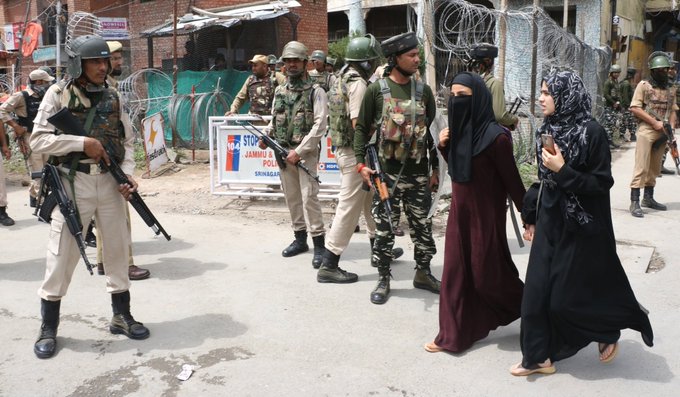New Delhi–As the Union government scrapped Article 370 of the Constitution giving special status to Jammu and Kashmir and split the state into Union Territories, some legal experts said the move will give more room to the Centre to control the Valley.
Describing how Union Territories with an Assembly function, the experts said two Union Territories of Jammu and Kashmir will get the benefit of a partial state such as Delhi and operate somewhat differently from Ladakh, a proposed Union Territory without legislature.
Union territories are federal territories governed directly by the Union government through its representatives.
Welcoming the decision, senior advocate Rakesh Dwivedi said now the Centre can govern the Valley directly through Lieutenant Governor as the administrator.
“The Centre will have stronger control over Kashmir valley now. Parliament can make laws with all subject matters concerning the Valley,” said Dwivedi.
India has seven Union Territories — Delhi, Puducherry, Andaman and Nicobar Islands, Lakshadweep, Daman and Diu, Dadra and Nagar Haveli and Chandigarh. Among these, Delhi and Puducherry have elected assemblies while the rest do not have a legislature.
Fomer judget S.N. Dhingra said that Union Teritories with an elected legislative assembly and an executive council of ministers have partially state-like functions.
He said the elected Assembly will have a similar kind of functioning like Delhi and Puducherry, which have their elected members and the Chief Minister, as these have been granted powers of partial statehood, but there is certain restriction on some issues.
“In some issues, elected representatives required to take approval of the Lieutenant Governor,” he said.
In the case of Delhi, issues related to land, police and public order fall under the domain of the Lt. Governor, a Central representative.
In a Union Territory with an Assembly, the elected representatives have got some power to govern the land whereas Union Territory with Assembly, the Centre controls the land through its representative.
However, a Union Territory with an Assembly will require approval from the Centre in certain issues as it happens in Delhi.
Senior Advocate Dwivedi said a Union Territory without a legislature will be similar to other Union Territories including Andaman and Nicobar Islands.
These Union Territories are governed by an administrator appointed by the President under Article 239 of the Constitution. (IANS)














